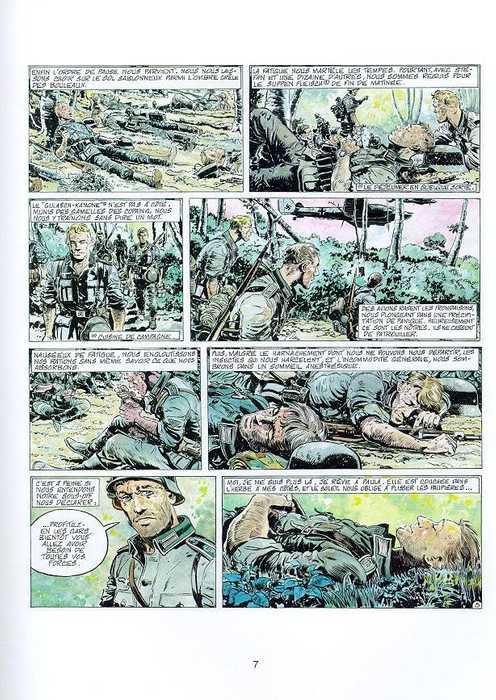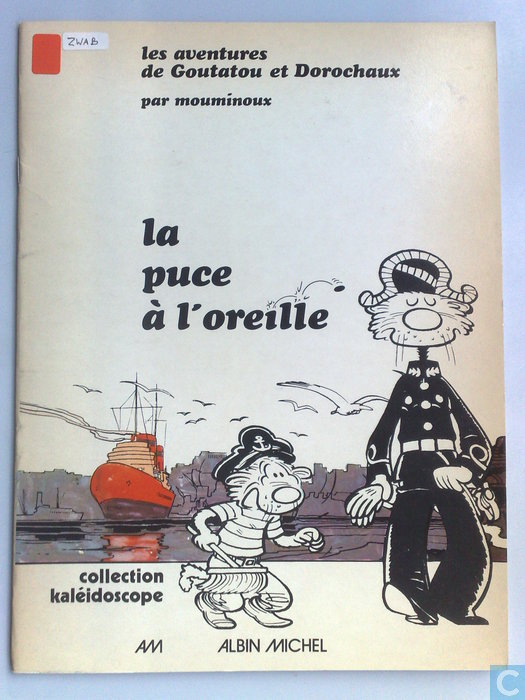Scan barcode
A review by bookishwendy
The Forgotten Soldier by Guy Sajer
4.0
The Forgotten Soldier was first published in 1965, and concerns events that happened over 20 years previously, when the author was a teenager living in France who was drafted into the German army. The memoir has since become the subject of much criticism by historians who question much of the historical detail, especially with regards to troop movements and dates. Supporters of the work argue that historical facts of strategic troop movements can be found elsewhere, and that the strength of this particular work is in the emotion and the visceral experience, and I'll have to agree. The Commandant of the US Marine Corps must also agree, since this was on his official reading list in 2013.
This isn't exactly an easy read, but it hit me so much harder than I'd expected. Sajer maybe doesn't have the writing chops of Cather or Steinbeck, and even apologizes a few times for his "inability" to do his topic justice in prose--and I have in fact been tempted to take a shot of scotch each time I encountered the simile "like an automaton" (maybe it sounds less weird in the original French?)--but then I'll stumble into some little gem of poetic self-awareness that wows me. I think he's at his best when he doesn't appear to be trying.
We're thrown in with Sajer and his companions when they first arrive on the Eastern front, and there isn't really a chance to get to know the characters befor things start to happen to them--I suspect this is why it took me a while to get emotionally involved (but when I did...dang). Since he starts out in a transportation batallion as a truck driver, Sajer's introduction to war is surprisingly gradual, and he is emotionally shattered by the first (comparatively small) wartime effects he sees. He's utterly convinced that he's a coward, but his teenage naivite rubs off quickly. He doesn't exactly grow numb to his surroundings, but sort of alternates between cynicism--especially around even younger untested, brainwashed & eager teenaged boys--and determination to empty his head of anything that is not in his immediate surroundings or in the immediate present. At some point he seems to realize that the only thing he's really fighting for is self-preservation. It's like watching a kid shrivel emotionally and die intellectually, if that makes sense. The battle scenes do go on a little long, though, and it's the kind of book that requires significant mental breathers.
The part that really got me, though, is when Sajer meets his father (a Frenchman, who fought on the French side in the Great War) during a brief leave to Berlin. The father's awkward sadness with what his son has become is just devastating. On the other hand, he doesn't stray too far away from humor, either. There's a great scene involving his scrawny & underfed teenaged self, a handful of eggs, and a strapping farmer's wife...yeah, just go read it.
I was curious about what happened to Guy Sajer after the war--and it turns out that, interestingly, he became a very prolific cartoonist. There's a lengthy entry on him on the "Lambiek Comicopedia" (http://www.lambiek.net/artists/m/mouminoux_guy.htm) and it looks like he did everything from cute kids cartoons to some pretty racy-looking pulp, mostly under the pennames Dimitri Lahache and Mouminoux. Looking through some of the images, there is a lot of material reflecting his war experiences, such as:

Though certainly not all of it:

Anyway, fascinating stuff.
This isn't exactly an easy read, but it hit me so much harder than I'd expected. Sajer maybe doesn't have the writing chops of Cather or Steinbeck, and even apologizes a few times for his "inability" to do his topic justice in prose--and I have in fact been tempted to take a shot of scotch each time I encountered the simile "like an automaton" (maybe it sounds less weird in the original French?)--but then I'll stumble into some little gem of poetic self-awareness that wows me. I think he's at his best when he doesn't appear to be trying.
We're thrown in with Sajer and his companions when they first arrive on the Eastern front, and there isn't really a chance to get to know the characters befor things start to happen to them--I suspect this is why it took me a while to get emotionally involved (but when I did...dang). Since he starts out in a transportation batallion as a truck driver, Sajer's introduction to war is surprisingly gradual, and he is emotionally shattered by the first (comparatively small) wartime effects he sees. He's utterly convinced that he's a coward, but his teenage naivite rubs off quickly. He doesn't exactly grow numb to his surroundings, but sort of alternates between cynicism--especially around even younger untested, brainwashed & eager teenaged boys--and determination to empty his head of anything that is not in his immediate surroundings or in the immediate present. At some point he seems to realize that the only thing he's really fighting for is self-preservation. It's like watching a kid shrivel emotionally and die intellectually, if that makes sense. The battle scenes do go on a little long, though, and it's the kind of book that requires significant mental breathers.
The part that really got me, though, is when Sajer meets his father (a Frenchman, who fought on the French side in the Great War) during a brief leave to Berlin. The father's awkward sadness with what his son has become is just devastating. On the other hand, he doesn't stray too far away from humor, either. There's a great scene involving his scrawny & underfed teenaged self, a handful of eggs, and a strapping farmer's wife...yeah, just go read it.
I was curious about what happened to Guy Sajer after the war--and it turns out that, interestingly, he became a very prolific cartoonist. There's a lengthy entry on him on the "Lambiek Comicopedia" (http://www.lambiek.net/artists/m/mouminoux_guy.htm) and it looks like he did everything from cute kids cartoons to some pretty racy-looking pulp, mostly under the pennames Dimitri Lahache and Mouminoux. Looking through some of the images, there is a lot of material reflecting his war experiences, such as:

Though certainly not all of it:

Anyway, fascinating stuff.